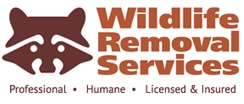Servicing Palm Beach and Broward County
561-212-9255
Raccoon Removal
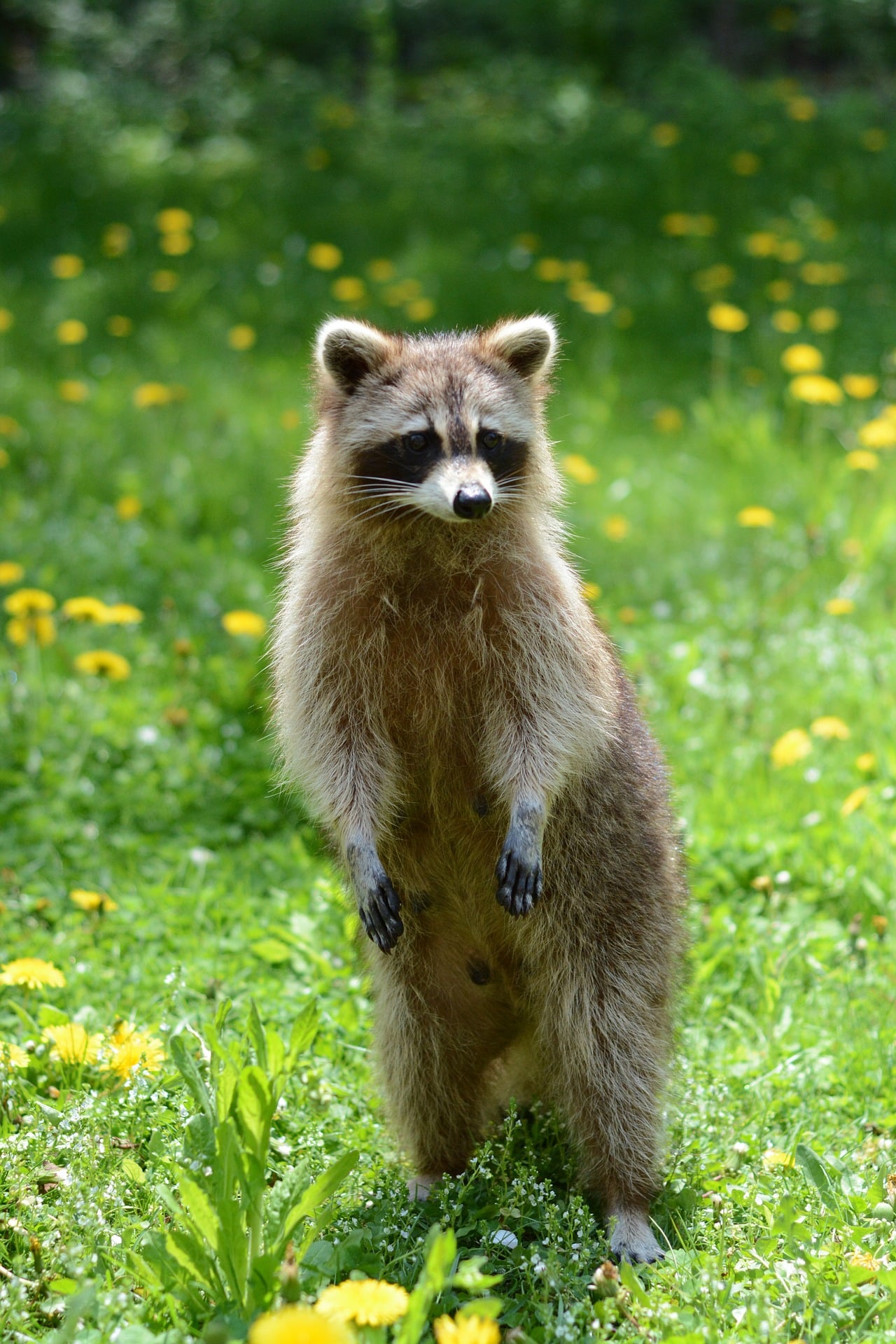
- What We Do
- Raccoon Removal Raccoons in South Florida
- Raccoon Damage & Disease
- Trap & Remove Raccoons on Your Property
- What to Do About Raccoons in the Attic
- Attic Decontamination after Raccoon Infestation
- How to Prevent Raccoons from Getting into Your Home, Business or Property
- Why Hire Us for Your Raccoon Problem in Palm Beach County?
How to Get Rid of Raccoons
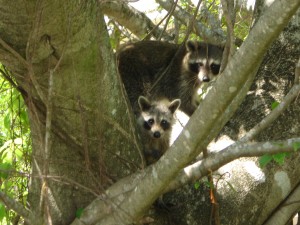
If you suspect you have a raccoon problem in your home attic or place of business, call Wildlife Removal Services, Inc for raccoon removal in the surrounding communities of Boca Raton, including Broward County and Palm Beach County. We specialize in humanely trapping and removing raccoons and repairing the damage that they cause.
As a full-service wildlife removal company serving Palm Beach County and Broward County in South Florida, Wildlife Removal Services will inspect your home or property for any and all visible signs of a raccoon infestation.
We will determine why the raccoons are there and how they got inside. Once we find and seal all the possible points of entry, we will trap and remove the raccoons. After they have been relocated, we will perform any necessary cleanup and attic restoration. Call Wildlife Removal Services today at (561)212-9255 to discuss raccoon control in the Boca Raton area in southeast Florida and schedule an inspection.
About Raccoons in South Florida
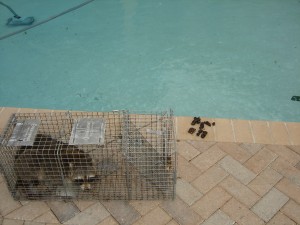
Raccoons mate for about three months in the spring and early summer, with females giving birth to a litter of three to five kits. This is the time we frequently receive calls from homeowners about seeing or hearing raccoons in the attic, as female raccoons will often seek out attics as a safe place to give birth and raise their young.
While they used to live primarily in wooded areas, raccoons now tend to make their homes near rich food sources such as populated urban areas. Because so many people make the mistake of feeding raccoons when they see them, raccoons then associate humans with food.
While they naturally feast on insects, fish, amphibians, berries, fruit, and nuts, raccoons will eat anything humans eat. That’s why you might see them rummaging through your garbage cans or ravaging your garden. They will also eat any pet food you might leave out overnight, which can attract other nuisance wildlife as well, such as rats and opossums.
Raccoons will typically take up residence in your attic (especially pregnant or lactating females), your garage or underneath sheds.
Raccoon Damage & Disease
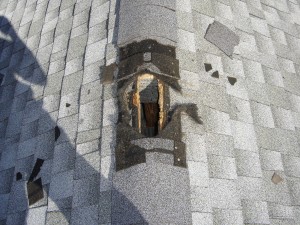
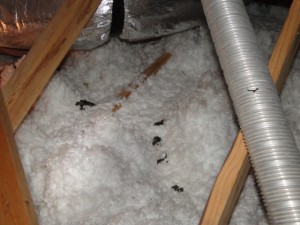
Raccoons are highly intelligent and boast impressive long-term memories. They can remember where food is located or how to open containers for up to three years! Unfortunately, this means they are likely to keep coming around as long as there is a food supply to be had.
Tipped over garbage cans with trash strewn around might be icky and inconvenient to clean up, but the damage you should be concerned about happens in the attic. Raccoons can soil insulation with their feces and destroy air and heating ducts, electrical wires and even plumbing pipe insulation.
Aside from damage, raccoons carry rabies, which is yet another reason why you should NEVER feed them or have any contact with them. In fact, 65% of animal rabies cases in Florida are the result of contact with or bites from raccoons. This critter also carries intestinal parasites and leptospirosis, a severe bacterial infection that can cause kidney damage, liver failure and meningitis in humans and pets.
Trapping and Removing Raccoons on Your Property
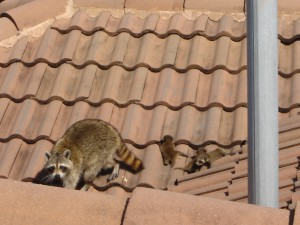
What to Do about Raccoons in the Attic
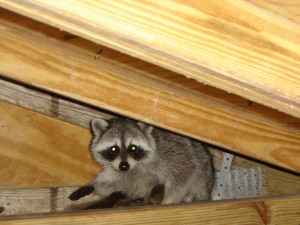
First, a WRS raccoon removal expert verifies the animals’ main entrance to the attic as well as all other potential pathways. After repairing all weak areas of the structure, but leaving a way to get in and out, the trapper can determine which tactic is best. The most efficient way is to chase the adult out of the attic and quickly seal that opening behind it.Then the trapper can remove the young without being attacked by an angry mother.
If babies are removed, they may be used as bait to trap a mother raccoon outside the structure. She may or may not go into the trap, but she must see that her babies have been removald. Otherwise maternal instinct will drive her back into the attic in search of her family, creating more damage. Once we have the mother and her litter, we will relocate them far away from your home and everyone can live happily ever after!
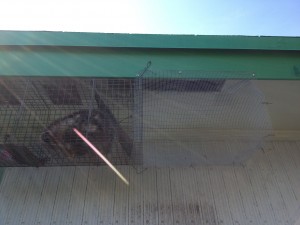
Attic Decontamination after Raccoon Infestation
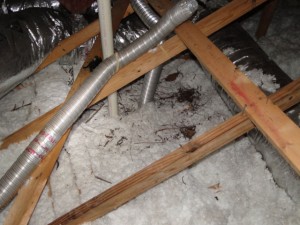
Leave it to us. Wildlife Removal Services will thoroughly clean all feces by hand and vacuum, then decontaminate your attic using an environmentally-friendly, biodegradable and non-toxic solution that destroys any last traces of the waste, germs, and odors left behind. If you’re hesitant to bother due to the costs, check with your homeowner’s insurance company. They may cover the cost of full attic cleanup and restoration, including the replacement of insulation with the new energy-saving kind.
How to Prevent Raccoons from Getting into Your Home, Business or Property
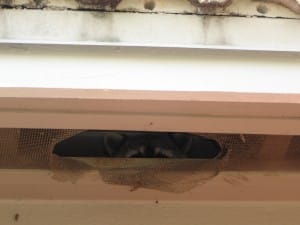
- Keep garbage cans locked up in a shed or garage (make sure these cannot be broken into) and put them out on the day of pickup (not the night before!).
- Do not leave bowls of pet food or scraps outside.
- Use a motion-activated sprinkler system to scare them off.
- Use a repellant such as Shake Away coyote urine. It’s organic, chemical-free and completely safe to use around people, pets, plants and grass.
Why Hire Wildlife Removal Services for Raccoon Control in Boca Raton and Palm Beach County?
We are Experts in Raccoon Trapping and Removal
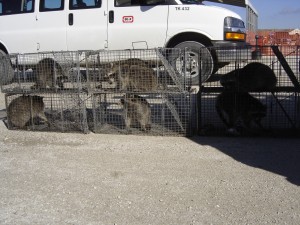
For complete raccoon removal in Boca Raton and the rest of southeast Florida, call Wildlife Removal Services (561)212-9255.
We have years of experience catching raccoons in the yards, homes, attics and businesses throughout Palm Beach and Broward County in South Florida. We will inspect your house or building for entry points and seal them with foam or a wire mesh that raccoons can’t chew or claw through. Inside or out, we can find their trail and capture them in just a few days. We will humanely trap them and release them back into the wild.
If the raccoons were in your attic, we will also clean up after them, decontaminating your attic with a non-toxic solution.
Wildlife Removal Services is fully licensed and insured, and we offer 24/7 service for residential and commercial customers. Call us today for a FREE no obligation estimate or submit the contact form. We’ll come to your home or office in Broward County, Palm Beach County, or Boca Raton and create a raccoon control plan to solve your problem. We always guarantee our work and have very fair pricing.
